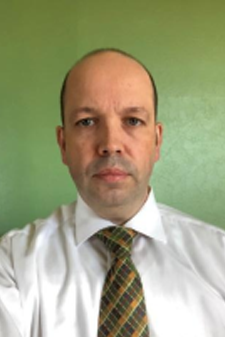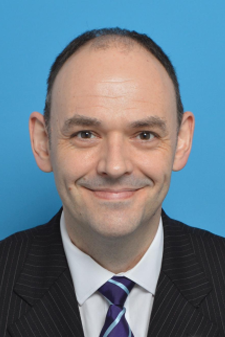Critical Realism in Applied Linguistics – Videos and Slideshows available for download
Free Webinar presented by Kyoto JALT
This event follows Kyoto JALT’s Annual General Meeting from 13:30 JST, open to all current Kyoto chapter members who register for this event.

Download and share our flyer
Downloadable A4-Portrait Flyer (PDF)
What is Critical Realism (CR)?
Research is always based on assumptions about what constitutes valid scientific knowledge and by what means or methods we can create it. Even lay people’s understanding of research is based on implicit assumptions that fall into one of the schools of thought that have been identified by the philosophy of science, e.g., empiricism, positivism, interpretivism, social constructionism or realism. In this panel we aim to show comprehensively how we can improve research in Applied Linguistics (AL) by firstly making these assumptions explicit so that we can secondly overcome their limitations. We adopt a particular philosophical framework, Critical Realism (CR) that has engaged in depth with the benefits and limitations of other schools of thought and developed clearer conceptual and methodological insights into the emergence of social phenomena, including those studied by applied linguists. To date, though, CR has been rarely used in AL and we will therefore give concrete examples where CR allowed us to transcend the conceptual and methodological constraints imposed by both empiricism and positivism (mostly associated with quantitative research) and interpretivism and social constructivism (mostly associated with qualitative research), the two dominant tendencies in the field.
Schedule
- 14:00 – Jeremie Bouchard
- 15:00 – Q & A/Discussion
- 15:20 – Dominic Edsall
- 16:20 – Q & A/Discussion
- 16:40 – Karin Zotzmann
- 17:40 – Q & A/Discussion
The Relevance of Critical Realism to Sociolinguistics
Jérémie Bouchard – Hokkai-Gakuen University
This presentation summarizes some of the ideas found in my recently published works (Bouchard, 2017, 2018, 2020, 2021, 2022; Bouchard and Glasgow, 2019) which, together, call for the integration of a critical realist approach to sociolinguistic research. Based on a critique of interpretivism (Sealey and Carter, 2004; Bouchard, 2021), a prominent perspective in sociolinguistics, the presentation highlights principles guiding critical realist sociolinguistics including (a) a layered, or stratified, view of social phenomena (Bhaskar, 1998; Layder, 1997) such as language, language users, and language education, and (b) a commitment to objective knowledge (Bhaskar, 1998).
References
- Bhaskar, R. (1998). The possibility of naturalism: A philosophical critique of the contemporary human sciences. Routledge.
- Bouchard, J. (2017). Ideology, agency, and intercultural communicative competence: A stratified look into Japanese EFL education. Springer.
- Bouchard, J. (2018). On Language, culture, and controversies. Asian Englishes, 20: 268–275. doi: 10.1080/13488678.2018.1449487.
- Bouchard, J. (2020). The resilience of native-speakerism: A realist perspective. In S. A. Houghton & J. Bouchard (Eds.), Native-speakerism: Its resilience and undoing (pp. 17–45). Springer.
- Bouchard, J. (2021). Complexity, Emergence, and Causality in Applied Linguistics. Palgrave Macmillan.
- Bouchard, J. (2022). Critical applied linguistics. JALT Journal 44(1): 153-169. doi: 10.37546/JALTJJ44.1-8
- Bouchard, J. & Glasgow, G. P. (2019). Agency in language policy and planning: A theoretical model. In J. Bouchard & G. P. Glasgow (eds.), Agency in language policy and planning: Critical inquiries (pp.22–76). London: Routledge.
- Layder, D. (1997). Modern social theory: Key debates and new directions. UCL Press.Sealey, A. & Carter, B. (2004). Applied linguistics as social science. Continuum.
Biography

Jérémie Bouchard is a professor in the Faculty of Humanities, Hokkai-Gakuen University (Sapporo, Japan), and a sociolinguist who, for the past ten years, has been both teaching and conducting research guided by critical and social realism and by complex dynamic system theory. His research began as an inquiry into the relationship between ideological discourse and foreign language education. His current interests center on claims about language and its real-world uses made within applied linguistics and, more broadly, on the possibilities for improving sociolinguistic research through the application of critical realist principles. The content of his presentation will include elements from his recently published monograph Complexity, Emergence, and Causality in Applied Linguistics (2021, Palgrave Macmillan, ISBN: 978-3-030-88032-3).
Understanding Learner Autonomy Better with Critical Realism
Dominic Edsall – Kyoto Prefectural University of Medicine
This talk will present a potential Critical Realism (CR) framework for learner autonomy and agency that uses CR to link motivation, autonomy, agency, and student engagement with institutional framing and wider social perspectives. Learner autonomy has been the focus of much research in language learning for the last 40 years; however, despite shifting theories, involving social theories and complexity theories amongst others, our understanding of learner autonomy within the wider learning ecosystem is still fragmented. The Douglas Fir Group (2016) has proposed a framework for competing social and cognitive perspectives on language learning that arranges these within Bronfenbrenner’s (1979) ecological model of learning but does not explain how these ideas might interact in real life. Using examples from a research project on autonomy and university EFL teachers in Japan, this presentation will discuss how CR can be applied to bring together competing perspectives on autonomy and learning, using the Douglas Fir Group (2016) framework with Williams’ (1999) trajectories of human responses to change. The proposed framework shows how we might better understand the links between student engagement, agency, and learner autonomy in our teaching and the dynamic links between motivation, agency, and the social in our research.
References
- Bronfenbrenner, U. (1979). The Ecology of Human Development: Experiments by Nature and Design. Harvard University Press.
- Douglas Fir Group, T. (2016). A transdisciplinary framework for SLA in a multilingual world. The Modern Language Journal, 100(S1), 19–47. doi: 10.1111/modl.12301
- Williams, D. (1999). Human responses to change. Futures, 31(6), 609–616. doi: 10.1016/S0016-3287(99)00017-8
Biography

Dominic Edsall is a doctoral candidate at the UCL Institute of Education, and an Assistant Professor in Medical Communication at the Kyoto Prefectural University of Medicine. He has previously taught at several universities in Japan, including Ritsumeikan University, Nara University of Education, Nara Women’s University, Sojo University, Kyoto University of Advanced Science, and Kanagawa University. His research interests include learner autonomy and agency, teacher development, teacher professionalism, knowledge practices within EFL teaching, motivation and CLIL, and the sociology of EFL teaching.
Critical Realism and research on students’ self-efficacy beliefs
Dr. Karin Zotzmann – University of Southampton
In this presentation, I will exemplify the additional value Critical Realism (CR) can bring to research on students’ self-efficacy beliefs in relation to a wide range of educational subjects and academic literacy more generally. In a first instance, I report on the insights generated by a collaborative quantitative investigation (Zotzmann & Sheldrake 2021) on self-efficacy beliefs and written assessment genres of L2 students at UK universities. We found widespread uncertainty in relation to assessment genres, especially in the first semester which impacted students‘ self efficacy beliefs and their grades negatively. In a second step, the limitations of this and similar quantitative studies and present thirdly a preliminary qualitative investigation that is based on a theoretical framework informed by CR. It assume that a. human beings (agents) are reflexive and who operate in relatively open, but nevertheless pre-structured social systems (structures), b. agents therefore differ in terms of how they respond to these contexts and c. self-efficacy is causally effective alongside other psychological, social and cultural factors (Brooker 2021), for instance, students’ motivation and ability to learn and transform, their degree of perseverance and resilience, their learning and writing strategies, the time they invest, and the support network they are able to draw upon.
References
- Booker, R. (2021). A psychological perspective of agency and structure within critical realist theory: a specific application to the construct of self-efficacy. Journal of Critical Realism 20, 3, 239-256.
- Zotzmann, K. & Sheldrake (2021). Postgraduate students’ beliefs about and confidence for academic writing in the field of applied linguistics. Journal of Second Language Writing. 52, 2-15.
Biography

Dr. Karin Zotzmann is an associate professor in Applied Linguistics at the University of Southampton and has previously worked in the same area at different public and private universities in Mexico, the Institute of Education, University of London (UK), and the College of Education and Leadership, Walden University (USA). Her main research interests include the conceptualization of intercultural competencies and learning in different social domains (education, business, and military) within the framework of transnational processes, the impact of social class on foreign language learning and teaching, and the implications of the internationalization and marketization of higher education on academic practices and inclusivity. All of her research is informed by Critical Realism.




